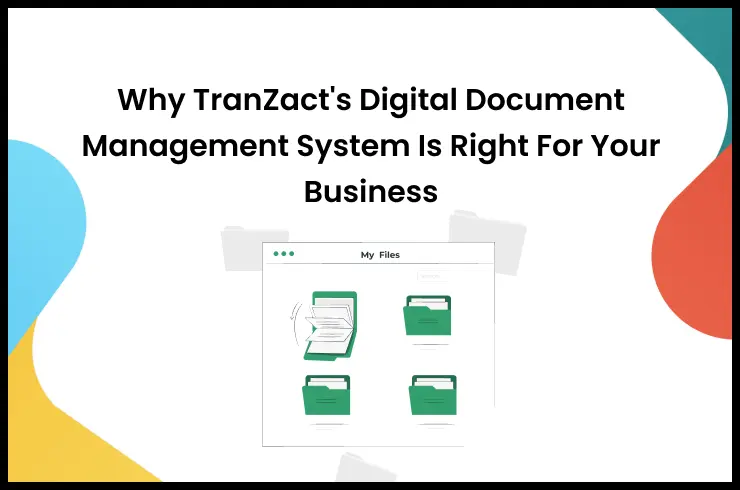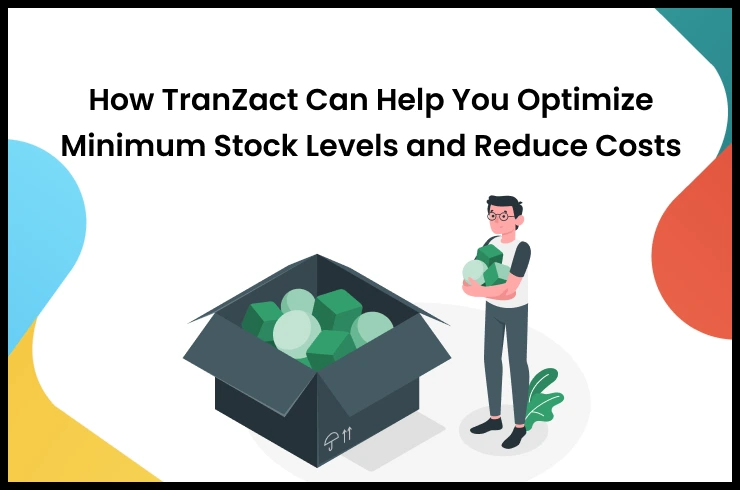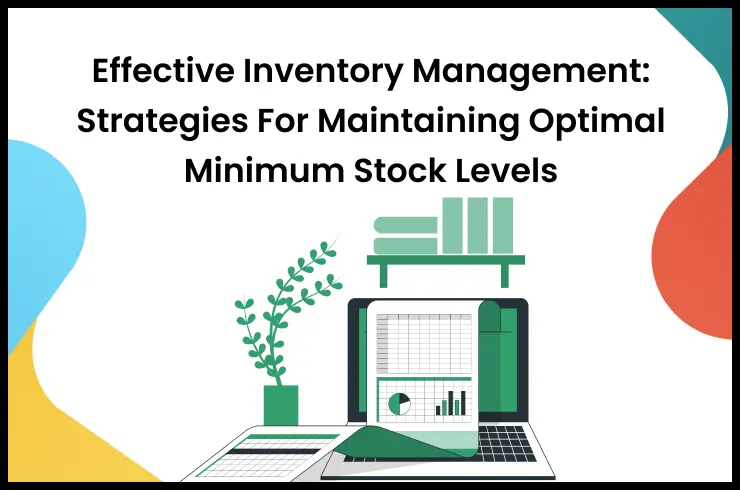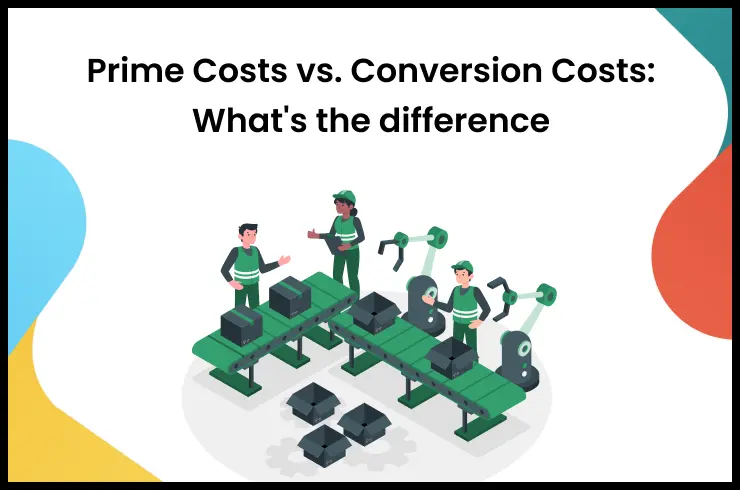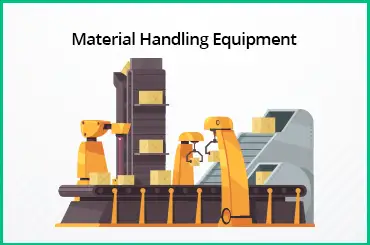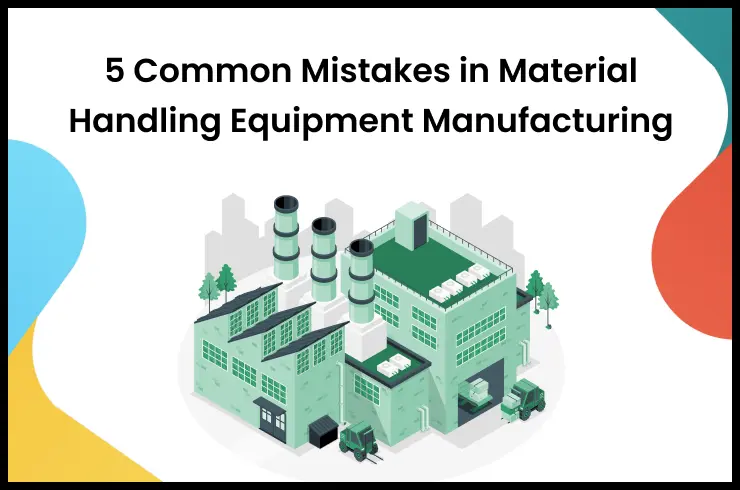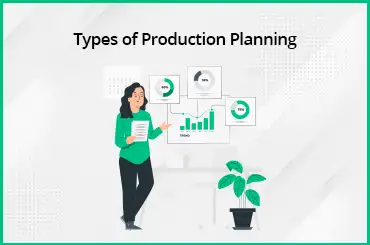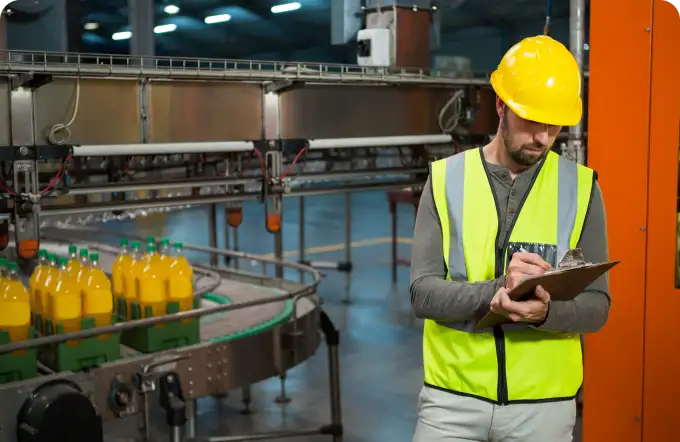In the production of any good, a proper materials management cycle is followed to meet the supply and demand in the market. Likewise, material management techniques play a significant role in the manufacturing sector wherein multiple processes take place to fulfill customer orders.
The prime process involved in materials management is to regulate the flow of materials and plan all the material requirements including inventory control and delivery of materials. Now, let's see the broader section of this key process component.
What Is Material Management?
Material management is the process of controlling the flow of materials along with planning, procurement, transportation, and allocation of materials on a day-to-day basis. This process is critical for the desired product to be manufactured and delivered on time. In this process, inventory control is also deployed ensuring that sufficient raw materials are available in the warehouse and are organized according to the nature of the material.
In general, materials are classified into two categories, i.e., Direct and Indirect materials. The former is quite important during the manufacturing process, and the same plays a key role in determining the price of the final goods. Whereas the latter acts as a catalyst in the production of a good and does not affect the price of the finished good significantly. But in the inventory, both materials are important, and the manager aligns them according to the production demand.
Core Elements of Material Management
As stated earlier, the material management process works on a certain set of parameters that involves some core elements. These elements are as follows:
Material Selection
In the manufacturing sector, the material is the pivotal element, and the right selection of the same is a must to give the desired output. In addition to this, the right quantity with the right specifications is desirable at the right time. If the raw materials get delayed, then it will impact the manufacturing process.
Balance of Demand & Supply
The order of raw materials depends on the demand for the final good. If the demand is high, you must secure the materials either using third-party vendors or direct from the producers. On the off chance that demand is low, you can minimize the materials ordered from the suppliers to cut costs and ensure balanced materials management.
Risk Factors
In the manufacturing line, risk management is quite important because of wear and tear of materials, damage due to unloading, and other factors that can impact the business. So, in the material management system, special focus is given while delivering the material to avoid any damage. When the risk factor of material handling is minimum, profits are higher.
Purchase
In the manufacturing sector, companies have a dedicated purchasing department, whose sole aim is to place material orders according to the requirement. The act of buying depends on several factors, including the demand for the finished goods, the price of materials, quality, and others. So, in the material management system, the purchase of materials is quite important, and an adequate balance of the same is a must.
Transportation
The next core element in materials management is transportation. Here, the company can directly coordinate with the vendor regarding transportation or can go with a third party. In any of these cases, the material manager is the sole person responsible for looking after the transportation of materials. During the process, they need to pay special attention as damage to materials mostly occurs during transportation. The manager must also check the quantity and quality of the delivered materials.
Objectives of Material Management
There are five fundamental objectives of material management which are mostly known as the 5 R's of material management, they are:
Right Material
The production of any good primarily depends on the material, and as a manufacturer, you must ensure from the seller that you are receiving the right material with quality as per standard norms.
Right Quantity
The next thing that must be noticed during material resource management is quantity. You must ensure that you are getting the right quantity from the seller and also check the bill of the container which is carrying the materials.
Delivery at the Right Time
Each process is linked with the others in industries and if your material gets delayed, the entire production process will be delayed.
Right Price
The price of materials varies from region to region due to state taxes and other factors. So, while quoting for the materials, you must check all the price-determining factors to get them at minimal costs.
Right Seller
Today, there's tough competition in the market due to the availability of a large number of sellers. As a result, it becomes quite difficult to trust a genuine seller, so your next move in material resource management is the selection of the right seller.
Materials Management Process
Material management is a wide concept as it has multiple processes, starting from purchase to receipt of the materials. In the purchase section, the key parameters to focus on are the right quality and quantity of materials. Such an act enables manufacturers to get the maximum output by delivering the right product to the end-users. In addition, the said parameter also reduces the additional cost of storage of the materials.
The next step in the material management process is the storage of materials, and for that, the warehouse must have enough space to keep the raw materials in good condition. Additionally, the storage also acts as a buffer stock of the final product and the raw materials, so being a manufacturer, you must ensure effective warehouse management that fulfills these needs.
The third step in materials management is transportation, and it's the responsibility of the seller to ensure that all the safety guidelines are followed by the supplier who is transporting the materials to prevent any hazardous incidents.
Once the material is delivered to your warehouse, you must ensure to check them properly. Moreover, you must ensure you got the right quantity of materials that too in good condition.
Types of Material Management
For the easy application of the materials management concept, it has been classified into a few types. Let's see the types of material management as follows:
Strategic Planning
In general, planning is done to achieve a set of goals as it directs us to a definite path. Likewise, in the manufacturing sector, material planning is done to produce final goods in sufficient quantity. If there is a shortage of materials or they are received in inferior quality, then the demand for the products in the market will significantly drop. Moreover, if the supply of raw materials is more, but the demand for the final good is not up to the mark, then it may lead to losses for the company. Therefore, strategic planning of materials is done to fulfill the market's demand.
Purchasing
The purchase of materials should be made economically, considering the demand for the product in the market. Moreover, the balance of material supply and production of goods must be maintained, and materials should be procured accordingly.
Inventory Control
Inventory control in the material management system is crucial for the accurate availability of materials on hand, materials used in the production of goods, and future requirements of the same.
Material Supply Chain
The material supply chain ensures that materials are procured and delivered to the manufacturers at the right time. If any component of this chain is disturbed, then stock availability and production cycles may be affected.
Benefits of Material Management
The concept of material management directs the respective authority of a company to utilize the material appropriately and maintain the flow of the same. Undoubtedly, there are many advantages of material management that can boost the company's output. Let's explore the benefits of material resource management:
Prevents Material Loss
Some material resources are limited, and for the production of goods, the materials should be properly utilized, considering the concept of sustainable development. Along the same line, materials management prevents the loss of materials by balancing their flow in the inventory. Moreover, reduction in materials loss by relying on the right material requirements planning (MRP) software can save money and increase the profit of a company.
Enhancement of Inventory Control System
An inventory control system directly affects productivity, so a proper stock of materials should be available and its flow should be supervised. Materials management balances the inventory system and enhances its accuracy, which can increase production efficiency.
Better Transport Techniques
Transportation is one of the essential pillars of materials management. A streamlined material management process enhances transportation and logistic techniques by correcting various touchpoints across the transportation cycle for effortless delivery of materials.
JIT Inventory System
Just-In-Time (JIT) inventory is the subset of materials management that leverages an inventory control system and fulfills the gap of the materials instantly as per the need. The imbalance of inventory levels is a usual scenario as a result of which production cycles are delayed. Addressing this concern, the JIT inventory system enables manufacturers to retain the optimum amount of inventory to reduce the risk of material loss while improving inventory performance.
Key Concepts of Material Management
Production and material management emphasize proper utilization and flow of materials to fetch the desired output with minimal wastage. To ensure this, there are a few key concepts that you must know about -
Demand Planning & Forecasting
Being a manufacturer, you must always be aware of the fluctuations in demand for the products that you are manufacturing. You need to plan everything as per the demand, and if there is a hike of the same, you must have adequate material stocks, the right supplier and smooth transportation arrangements to fulfill the same.
Inventory Management
Inventory management is yet another key concept of materials management as it enhances stock movements, finished goods, and the wastage of materials. If you have these aspects organized, then you can easily manage production and inventory.
Procurement Management
Procurement management is quite important in the industrial sector because several factors are considered during the procurement of goods which directly impact the end outcomes of your deliveries. These factors include strategic planning, authentic material supplier, proposal and negotiation, and delivery of orders.
Material Handling & Transportation
Material handling and transportation is another key concept of materials management that ensures all types of materials are delivered in the right conditions based on their nature. For example, glass doors for an interior decor business must be handled, stored, and transported with utmost care.
Warehousing & Storage
The warehouse should have sufficient space to retain the raw materials and finished goods based on the number of materials used, and final products manufactured. In addition to this, the warehouse must have the proper environment to keep the materials safe.
Supply Chain Management
The last concept in materials management is the supply chain, which comprises the entire process of transforming raw materials into final goods. Throughout the supply chain system, various functionalities such as procurement, inventory, order management, logistics, and production need to be interconnected in order to maintain an efficient flow of goods.
What Does a Material Manager Do?
A material manager is a person responsible for looking after each activity involved in the material flow process. It's the duty of the manager to order the material based on the requirements and also to ensure that the material is of the utmost quality and should reach the warehouse at the right time.
Apart from managing the flow of material and all functions of material management, a manager must also look out for the cost factor before ordering materials. In addition to this, a material manager must supervise inventory activities too, and it's their responsibility to ensure the stock of materials; if they are out of stock, then they must order the same without delay.
Material Management Tool - a One-Stop Solution to Enhance Productivity
In the production unit, there are several factors to be considered, but the prime one is material management, and if the flow of the same is flawless, then ultimately, it will give you the best results. TranZact provides an MRP and inventory management system that ensures an uninterrupted flow of materials and provides automated processes to oversee transportation, and procurement activities. It helps to accurately manage all your data and gives you a centralized glimpse of data at all times!
FAQs on Material Management
1. What are material management tools?
Material management tools include tools for procurement of materials, inventory control, capital management, material tracking, transportation, and receiving.
2. What is the importance of material management in manufacturing?
Materials management plays a key role in the manufacturing sector as it ensures smooth planning and controlling of the flow of materials from source to consumption. This leads to cost savings, improved production, and customer satisfaction.
3. What is the purpose of material management?
The purpose of material management is to ensure that the right materials are available in the right quantity, at the right time, and at the right cost so that the risk of stockouts is minimized and production is never hampered.
4. How can materials management help in cost reduction?
Materials management ensures that the stock on hand is always in good condition and there is no shortage of stocks because the purchase of additional materials can be expensive. If there is no need for materials, materials management helps to avoid excess spending unnecessarily.
5. What is the difference between material management and inventory management?
Material management is a concept that deals with the planning, controlling, and monitoring of the flow of materials. Whereas, inventory management oversees the available inventory of finished goods, work-in-progress, and raw materials along with activities such as forecasting demand, setting reorder points, and tracking inventory levels.








